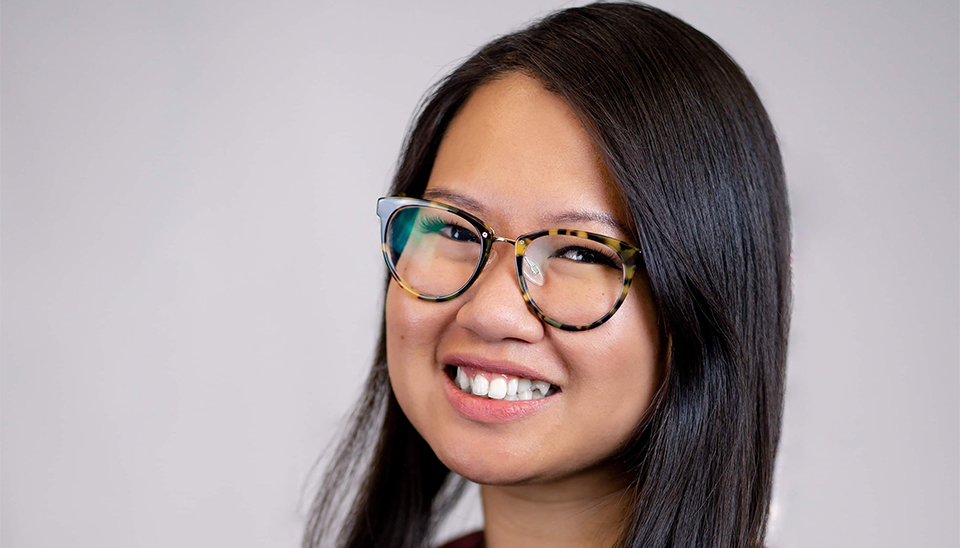
As a Ph.D. candidate in Culture and Teaching, Diana Chandara was drawn to the program because of its politically committed curriculum dedicated to equity and social justice, as well as the diverse ethnic identities of the faculty.
What is your research focus?
My research interests are culturally relevant pedagogy, immigrant identity, and constructions of femininity. More specifically, I am thinking and learning more about how Lao-American and Cambodian-American girls construct gender identities within the dominant discourses of the institutions of schooling, family, and cultural communities. I am interested in the ways ethnic identities are understood as assets to academic identities.
What drove you to enroll in the program?
I have read the works of Professor Bic Ngo and Associate Professor Vichet Chhuon during my undergraduate and MA program and I was excited to be able to learn, think, and grow with them as a Ph.D. student. Southeast Asian American faculty are few and far between–imagine my delight to find out that there existed a program with TWO of them! I was also drawn to the Culture and Teaching program area’s explicit statement that it is a politically committed program dedicated to equity and social justice.
Were there any surprises and challenges along the way?
My biggest challenge was living away from home. As a California native, the ecological and cultural climate were something I had to learn to be accustomed to. I also felt disconnected from my community and selfish for being able to focus on my academics without family responsibilities. Thankfully, I was blessed with deep friendships with a couple of other Culture and Teaching students who gave me a sense of home away from home and reminded me that my work in the institution matters.
What has been your experience with the faculty?
My experience with the faculty has been really positive. I could not have asked for professors who are more supportive of me, not only as an academic but also as a human being with feelings, needs, and desires. I am completely grateful for the generosity of their time and energy.
Which resources have you found through the program to help with your research?
My advisor, Dr. Bic Ngo, has been a dream of a resource provider. I’ve also been offered different opportunities to work with other faculty. Overall, the sharing of resources by both faculty and other graduate students as well as classroom discussions and informal chats have guided me with my research.
What do you hope to do after graduation?
I hope to do more work in education at the intersection of anti-oppression and immigrant studies.
Did you have scholarship support? If so, what did it mean to you?
I was offered a fellowship and it was extremely helpful in alleviating my financial and emotional stress. Not having to worry about finding a graduate assistantship each semester gave me the mental space to be immersed in my academic interests.
Learn more about Culture and Teaching degrees and programs in the Department of Curriculum and Instruction.



